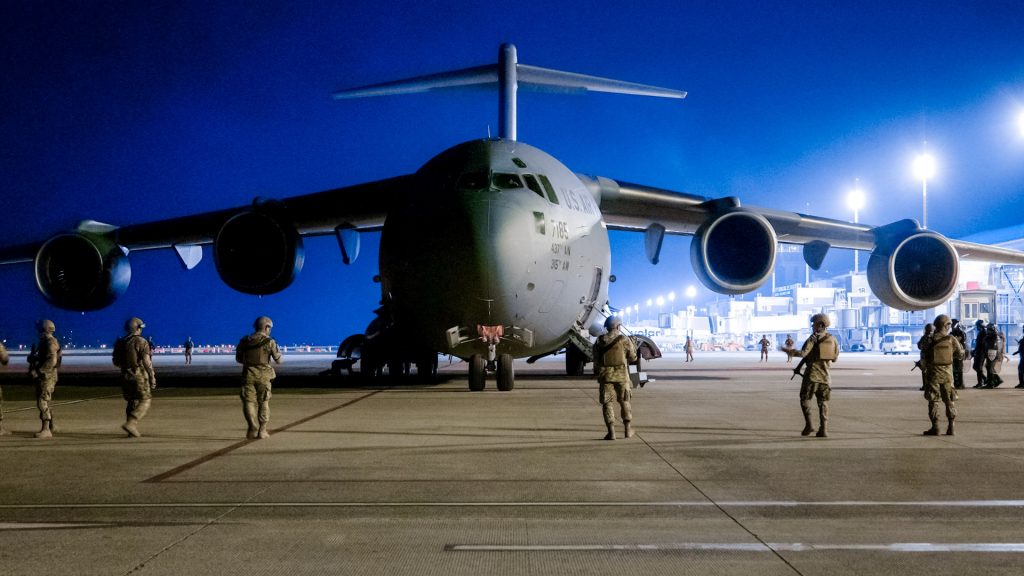Judge weighs contempt hearings, says deportation flights defy injunction
Ella Greene April 4, 2025 0
- Federal Judge James Boasberg is considering contempt charges against Trump administration officials for allegedly violating a court order blocking deportations. The judge questioned the administration’s decision to rush deportations of Venezuelan migrants on March 15.
- The administration invoked the Alien Enemies Act to justify the removals and claimed the migrants had ties to a Venezuelan gang operating on behalf of the government.
- El Salvador refused to accept eight deportees, prompting U.S. officials to bring them back — undermining the government’s arguments about operational difficulty.
Full Story
A federal judge is considering whether Trump administration officials violated a court order by proceeding with deportation flights of Venezuelan migrants to El Salvador.
On Thursday, April 3, Judge James Boasberg of the U.S. District Court for D.C. said there’s a “fair likelihood” the administration acted in bad faith by rushing to remove the migrants on March 15 — the same day the court began reviewing the legality of the expulsions.
The administration argued the gang operates on behalf of the Venezuelan government, allowing it to justify the removals under national security authority and the 1798 Alien Enemies Act.
What happened on the day of the flights?
Boasberg issued a temporary injunction on March 15 to block the deportation of five migrants and scheduled a hearing for that afternoon to consider a broader halt. By the time court was in session, two of three planned flights had already departed.
Boasberg said the sequence raised serious concerns that the administration was attempting to rush the deportations before the court could intervene.
During the hearing, Deputy Assistant Attorney General Drew Ensign said other agencies had not informed him the flights had launched. Boasberg questioned why the government didn’t pause deportations after the court’s initial ruling and called the lack of coordination “puzzling.”
What legal argument is in dispute?
Government lawyers argued the court’s order didn’t apply to planes already in the air. But Boasberg pushed back, pointing to an oral instruction he gave on the evening of Thursday, April 3, that called for any active flights to be turned around.
The administration said it followed the written version of the order issued shortly afterward — but wouldn’t provide more details, citing the state secrets privilege.
That raised red flags for Boasberg, who said there was no sign the flight information was classified. He also noted he had never seen a case where the government withheld unclassified information from a judge.
Could contempt charges be filed?
Boasberg said he may initiate contempt proceedings if he finds that officials knowingly defied his order. Courts can impose fines or other sanctions for such violations.
He also said identifying who made key decisions — including whether to alert pilots — would be critical to determining accountability.
Ensign declined to name officials outside the Justice Department, citing attorney-client privilege. He also admitted that during the hearing, he lacked full knowledge of what was happening with the deportation process.
Were any deportees brought back?
Officials said El Salvador declined to accept eight individuals — seven women and one man — so they returned them to the U.S.
Boasberg cited their return as evidence that reversing the flights was logistically feasible, undercutting the government’s arguments about operational difficulty.
The judge also cited the deportation of Kilmer Armado Abrego-Garcia, a man protected by a prior court order, as further evidence that the process may have unlawfully swept up people who were not subject to removal.
What comes next in the legal process?
Boasberg has not yet ruled on whether contempt proceedings will begin but said a decision could come as soon as next week.
Meanwhile, the Trump administration has asked the Supreme Court to uphold its use of the Alien Enemies Act and allow additional deportations, arguing that national security concerns should limit judicial oversight.
Ella Rae Greene, Editor In Chief
Ella Greene
Ella and the staff at Clear Media Project (CMP) curate these articles.
Unless otherwise noted CMP does not write these articles.
The views, thoughts, and opinions expressed in the articles published on this blog belong solely to the original authors and do not necessarily reflect the views of the blog owner. The blog owner does not claim ownership of the content shared by contributors and is not responsible for any inaccuracies, errors, or omissions.
All rights and credits goes to its rightful owners. No Copyright Infringement is intended. If you believe any content infringes on your rights, please contact us for review and potential removal.





